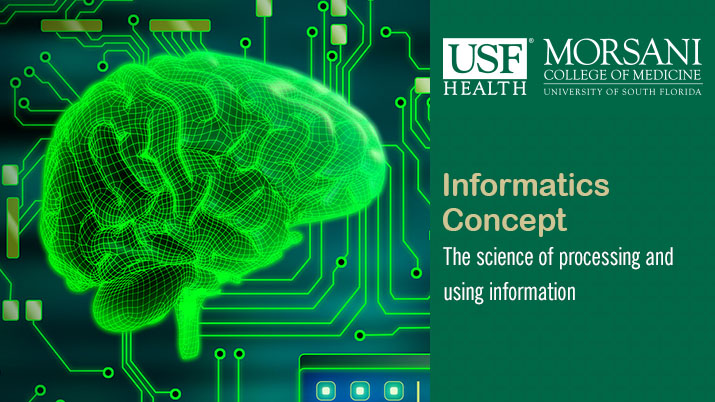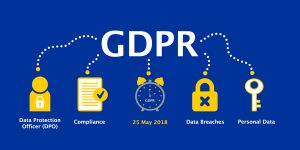At its core, informatics is the science of information and all its aspects – storage, how it’s processed, communicated and used. It is mainly thought of today as computerized information, but can also apply to information stored, communicated and used on paper, audio tape or even in someone’s brain.
Though a current informatics definition is now usually linked with a scientific discipline such as medical informatics or healthcare informatics, the term also can apply to more diverse areas such library informatics, financial or even sports.
With the increase of electronic health records, the healthcare field has become one of the dominant users of informatics. As today’s seemingly infinite amount of data continues growing, informatics is used to help process, analyze and communicate large chunks of data while seeking clues to support and sustain public health and enhance the quality of care in the field of biomedical informatics.
And, as federal healthcare mandates require more extensive sharing of electronic records, the number of informatics jobs available and the need for skilled workers continue to grow.
Biomedical informatics can assist research, analyze clinical care and monitor public health through data mining, language processing, cognitive science and human interface design, according to the American Medical Informatics Association, or AMIA.
At the heart of the science is the need to create algorithms and databases to crunch the hefty volume of clinical research, genomics, proteomics and public health data that exists. On a more personal level, health informatics can gather, store and more quickly disseminate an individual’s healthcare information between various providers.
A Brief History of Informatics
The term “informatics” was coined as the name of one of the first software companies. Its founder, Walter Bauer, wrote in a 1996 paper for the Institute of Electronics Engineers that he and his colleagues at the company chose the name Informatics because it suggested “the science of information handling.”
Interestingly, the French version of the name was coined almost simultaneously by Phillipe Dreyfus of the software company SIA (Societe pour L’Informatique et Applique). Bauer wrote that in a conversation with Dreyfus, both revealed that companies had come up with their respective versions of the term in March 1962.
Key Areas of Informatics
The AMIA divides biomedical informatics into five key areas of practice:
- Translational Bioinformatics involves researching ways to analyze and interpret medical data and developing ways to use and integrate the information into clinical and healthcare applications.
- Clinical Research Informatics uses informatics such as from clinical trials to reveal new discoveries in healthcare and disease.
- Clinical Informatics applies informatics and data to the delivery of a range of healthcare services that can be used by all health professionals such as nurses, pharmacists and physicians.
- Consumer Health Informatics focuses on data that consumers can use to improve their own health care and seeks to make medical information available and useful to consumers.
- Public Health Informatics applies informatics to areas of public health such as prevention, reporting and preparation and involves data for groups instead of individual consumers.
The diversity of bioinformatics applications opens a range of informatics careers that has reached to industries beyond healthcare, according to a June 2014 article on the science news website sciencemag.org. Employers in the pharmaceutical, software and biotechnology industries are seeking to hire trained professionals trained in informatics, the article said.
Informatics Career Options
Some careers in the growing field are:
- Healthcare IT Project Manager: Creates and supervises research projects, maintains communication with all project participants and adapts to needed changes
- Nursing Informatics Specialist: Trains nurses on protocols of record keeping, enhances accuracy of records and aids in the integration of data into patient care
- Chief Medical Information Officer (CMIO): Oversees information processing, IT systems and improvement of information technology infrastructure, designs software applications and conducts training
- Health Informatics Consultant: Advises facilities about meeting federal mandates, installing software, troubleshooting and training.
- Health Informatics Director: Helps coordinate data use among departments at an executive level, handles training and meets with medical personnel on technology issues.
An advanced degree in health informatics from USF Health’s Morsani College of Medicine at the University of South Florida’s online program may open the path for professionals to enter or advance into the growing and diverse realm of informatics.
Big pharma, biotech, and software companies are clamoring to hire professionals with experience in bioinformatics and the identification, compilation, analysis, and visualization of huge amounts of biological and health care information.



